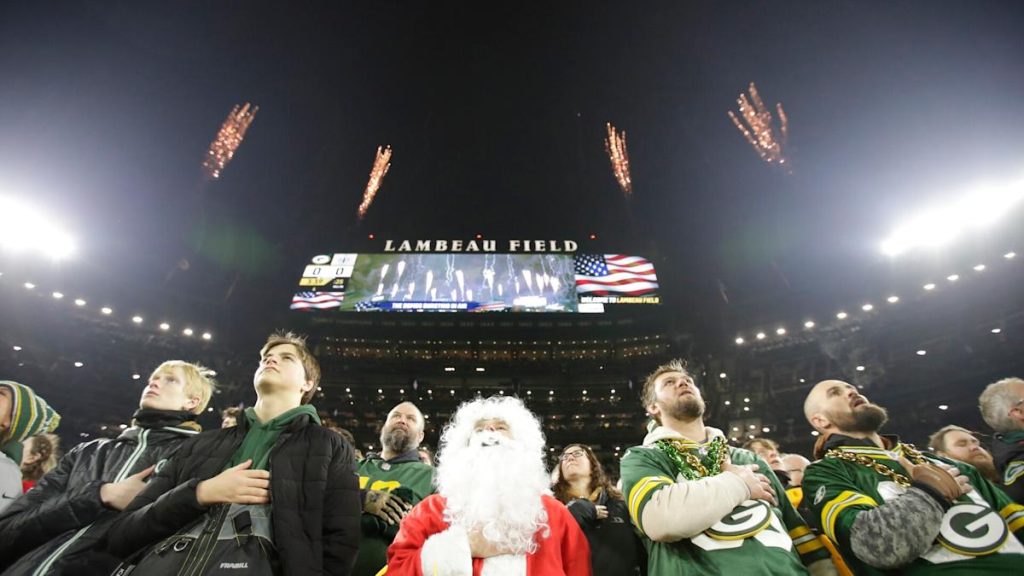Packers’ Stock: A Unique Tradition
The Green Bay Packers are known for their unique community-owned model, which sets them apart from other professional sports teams. Unlike shares of stock in publicly-traded companies, Packers’ stock cannot be resold. This policy is rooted in the club’s commitment to keeping the team locally owned and ensuring that the profits and decisions remain in the hands of the community. The idea is to foster a sense of shared ownership and pride among Packers fans, rather than allowing the stock to become a financial commodity traded on the open market. This approach has been a cornerstone of the team’s identity and has helped maintain its close connection to the city of Green Bay.
Season Tickets: A Valuable Privilege
While Packers’ stock is non-transferable, the same has not been true for season tickets. Until recently, season-ticket holders had the freedom to resell their tickets to games, a practice that has become increasingly common and lucrative. Re-selling tickets at a profit, once considered sleazy and even illegal, has now become mainstream and digital, thanks to the rise of online ticket marketplaces. For many fans, season tickets are more than just a way to see games; they are also a means of generating income by selling them to those who are unable to attend. However, this practice has not gone unnoticed by the Packers organization.
New Policy: Cracking Down on Scalping
Recognizing the potential for season-ticket holders to become de facto brokers, the Packers have implemented a new policy aimed at curbing this trend. As reported by Rob Demovsky of ESPN.com, the team is now cancelling the season tickets of those who have sold 100 percent of their tickets for multiple consecutive years. This move is intended to ensure that season-ticket holders are genuine fans who intend to attend the games, rather than individuals who are merely profiting from the tickets without ever stepping foot into Lambeau Field. The policy is a clear attempt to preserve the authenticity and fan engagement that the team values so highly.
The Waiting List: A Fairer Distribution
The reclaimed season-ticket rights will be offered to fans on the team’s lengthy waiting list. This waiting list is a testament to the high demand for Packers tickets, reflecting the team’s enduring popularity and the limited number of seats available. For many fans, waiting for years to secure a season ticket is part of the experience, and this new policy aims to make that wait more worthwhile. By reallocating tickets to those who are more likely to attend the games, the Packers are ensuring that the fan base remains vibrant and engaged, and that the tradition of supporting the team in person is maintained.
Working Around the Policy
Despite the new policy, it’s still relatively easy for season-ticket holders to work around the cancellation of their tickets. If selling all of them in multiple years is the trigger for cancellation, fans can keep one ticket for one game per year and sell the rest. This strategy allows them to continue profiting from their tickets while technically adhering to the team’s rules. However, the Packers could further tighten the policy by gradually reducing the number of games that can be sold without risking cancellation. For instance, they might start by cancelling tickets for those who sell all but one game, then move to all but two, and so on, until the season-ticket holders are fans who personally attend most of the games in a given season.
Balancing Tradition and Modern Practices
The Packers’ new policy reflects a broader tension between tradition and modern practices in professional sports. On one hand, the team’s commitment to community ownership and fan engagement is a hallmark of its history and identity. On the other hand, the digital age has transformed the way tickets are bought, sold, and resold, making it more challenging to uphold these values. By implementing this new rule, the Packers are trying to strike a balance between honoring their roots and adapting to the changing landscape of ticket sales. It remains to be seen how effective this policy will be in the long run, but it is a step towards ensuring that the passion and presence of true fans continue to define the Green Bay Packers experience.











